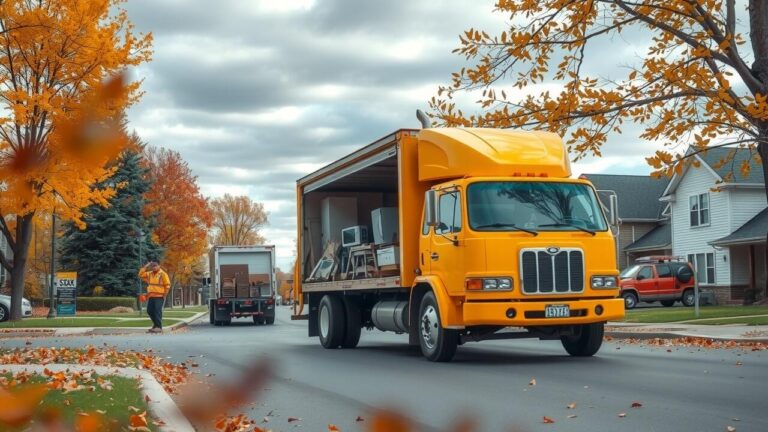Why Rent a Residential Dumpster for Your Home Project?
Rental Process for Residential Dumpsters
When planning a home project that generates substantial waste, securing a residential dumpster is often a practical choice. The rental process begins with researching local companies that provide dumpster services. It’s essential to compare prices, sizes available, and rental terms. Many companies allow you to reserve a dumpster online, making it convenient to secure your rental at any time of day.
After selecting a company, the next step involves determining the appropriate size for your project. Residential dumpsters come in various sizes, often ranging from 10 to 40 cubic yards. Discussing your project details with the rental provider can help in selecting the right size. Once you’ve chosen a size, you can finalize your reservation, and the company will arrange for the delivery of the dumpster to your specified location.
StepbyStep Guide to Securing a Dumpster
The first step in securing a dumpster involves determining the specific needs of your project. Consider the type of waste you will be disposing of and the amount. This will help in choosing the appropriate dumpster size. Research local companies that offer rental services and compare their prices and availability. Reviews from previous customers can provide insight into the quality of service offered by each provider.
Once you have selected a rental company, it’s essential to confirm the details of the rental agreement. Ask about delivery options, pick-up times, and any associated fees. Ensure you understand the terms regarding weight limits and prohibited items. After finalizing the arrangements, prepare the designated area for the dumpster’s arrival. Clear the space to allow for easy access and ensure compliance with any local regulations regarding placement.
Common Misconceptions About Dumpster Rentals
Many individuals assume that renting a dumpster is prohibitively expensive, yet this often overlooks the convenience and efficiency it provides. When undertaking home improvement projects or clearouts, the cost of hauling away debris can accumulate quickly. Rather than making multiple trips to a landfill, a single rental can streamline the entire process, potentially saving both time and money.
Another common belief is that dumpsters take up too much space and are difficult to position on residential properties. In reality, dumpster rental companies offer various sizes to accommodate different needs, making it easier for homeowners to find the right fit for their project. Companies also provide guidance on optimal placement, ensuring that even tighter spaces can be utilized effectively without causing disruption to the surrounding area.
Debunking Myths Surrounding Cost and Convenience
Many people believe that renting a dumpster for residential projects is prohibitively expensive. In reality, costs often vary based on size, rental duration, and local pricing structures. When considering a home renovation, cleanout, or landscaping project, it’s essential to factor in the potential disposal fees and time savings. The convenience of having a designated space for debris can save homeowners money and hassle in the long run, particularly when compared to multiple trips to the local landfill.
Another common myth is that renting a dumpster is an inconvenient process. The truth is, many rental companies offer straightforward online booking and flexible delivery options tailored to fit busy schedules. A wide range of sizes is available, making it easy to choose one suited for the project at hand. With just a quick call or click, homeowners can have a dumpster delivered right to their doorstep, streamlining the cleanup and allowing them to focus on completing their projects efficiently.
Safety Tips When Using a Residential Dumpster
Using a residential dumpster requires attention to safety to ensure that both the occupants and the surrounding area remain secure. It is essential to load the dumpster evenly to avoid tipping. Keeping heavier items at the bottom and lighter materials on top helps maintain balance. Proper lifting techniques should be employed when moving materials. Avoid overfilling the dumpster as it can lead to hazards when it is being transported, and debris may fall during movement.
Proper clothing and protective gear play a significant role in ensuring safety while using a dumpster. Sturdy gloves, closed-toe shoes, and long sleeves can help prevent injuries from sharp objects or hazardous materials. It is also advisable to keep the work area clear and well-lit to prevent accidents, especially during nights or in low-light conditions. Be mindful of where the dumpster is placed. It should be located away from power lines and not obstruct pedestrian pathways or driveways.
Ensuring a Safe Work Environment
Using a residential dumpster can significantly streamline your project, but safety should always be a priority. Ensure that the dumpster is placed in a stable, level location away from any hazards such as overhead power lines and heavily trafficked areas. Adequate space around the dumpster allows for easy access and prevents accidents during loading and unloading. Inform everyone involved in the project about its location and any specific safety guidelines to follow while working around it.
Make sure to load the dumpster evenly to maintain balance. Overloading one side can lead to tipping or make it challenging for the hauling company to transport it safely. Avoid placing hazardous materials or heavy items that could puncture the container. Wearing gloves, steel-toed boots, and other appropriate safety gear will minimize the risk of injuries during the loading process. Encouraging a culture of safety among everyone working on the project fosters a more secure and efficient environment.
Local Regulations and Requirements
Renting a dumpster often comes with specific local regulations that homeowners must adhere to. Municipalities may require permits for dumpster placement, especially if the unit occupies a public street or right-of-way. Failure to obtain the necessary permission could result in fines or penalties. It’s essential to check the rules of your local jurisdiction before securing a rental to avoid any potential issues down the line.
Understanding placement rules is equally vital. Some areas might have restrictions regarding the distance a dumpster can be placed from a roadway, sidewalk, or property line. Additionally, certain neighborhoods may have guidelines on the duration you can keep a dumpster on your property. By being well-informed about local regulations, you can ensure a smoother rental experience and maintain compliance with community standards.
Understanding Permits and Placement Rules
Before renting a residential dumpster, it’s vital to familiarize yourself with local regulations. Many municipalities enforce specific guidelines regarding where a dumpster can be placed. This includes restrictions on street placement, proximity to driveways, and minimum distances from sidewalks or intersections. Checking with your local zoning office can help you avoid fines or even removal of the dumpster by municipal workers.
Permits may be required in certain areas, especially if the dumpster needs to be placed on a public street or sidewalk. The application process for a permit can vary depending on the jurisdiction. It is usually a straightforward procedure but may take several days. Ensuring compliance with local rules not only prevents delays but also guarantees a smooth project experience without unnecessary legal issues.
FAQS
What types of projects are residential dumpsters typically used for?
Residential dumpsters are commonly used for various home projects, including renovations, cleanouts, landscaping, and large clean-up jobs, such as post-storm debris removal.
How do I choose the right size dumpster for my project?
To choose the right size dumpster, consider the volume of waste you expect to generate. Rental companies often provide size guides that can help you estimate which size will best fit your needs.
Are there any restrictions on what I can place in a residential dumpster?
Yes, most dumpster rental companies have restrictions on hazardous materials, such as chemicals, paints, and batteries. It’s essential to check with your rental provider for a complete list of prohibited items.
What is the typical rental period for a residential dumpster?
The rental period for a residential dumpster usually ranges from a few days to a week, but many companies offer flexible options depending on your project’s requirements.
Do I need a permit to place a dumpster on my property?
Generally, you do not need a permit if the dumpster is placed on your private property. However, if the dumpster needs to be placed on a public road or sidewalk, you may be required to obtain a permit from your local government.







